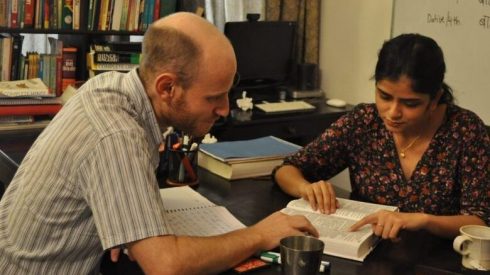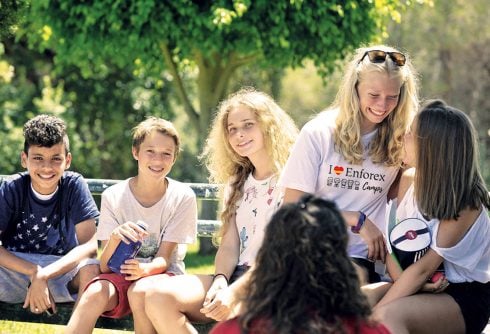NO one wants to be the expat who can’t speak the language, but starting out on the road to being bilingual can be hugely intimidating.
There are many different options and the indecipherable long lists of schools online would put off even the most enthusiastic of students.
But here, the Olive Press has broken down all you need to know about picking the best language lessons for you.
ALONE OR IN A GROUP?
The first choice you face is whether you want to be taught alone or as part of a group, and both options have their advantages and disadvantages.
If you go solo you’ll have 100% of the tutor’s attention, making your lessons more intensive and solely structured around you.
But many people find a group learning environment more beneficial, and that a sense of camaraderie boosts their enthusiasm.
Learning from your peers is invaluable, and if you’ve recently moved here, language classes can be a good way to meet like-minded people in a similar situation.
There is much debate over whether solo or group classes are the more effective, but ultimately this choice is down to what you feel will suit you best.

FINDING A TUTOR:
There are many ways of tracking down a tutor, the most useful way in a smaller town is to check ads in local newspapers and other community areas like post offices and newsagents.
If you’re in a larger town or city, there are a number of websites where tutors advertise that ensure a level of legitimacy.
Try www.language-school-teachers.com, a website that allows you to search for tutors by city. Or www.spanishteachermalaga.com, which focusses on Malaga, Marbella and the Costa del Sol.
The key factor for choosing a personal tutor is to find someone who you get on well with. Don’t be afraid of asking for a discounted first lesson, to make sure that the tutor is the kind of person you’re looking for.
FINDING A GROUP CLASS:

The search for a group class can be even more baffling, as language schools tend to employ more persuasive marketing tactics than personal tutors and there are a lot more factors to consider.
Be clear in your own mind what you’re looking for and you can simplify the search before it even begins.
These are the main factors to consider:
TYPE OF COURSE:
The intensity of timetabling varies greatly from course to course. Some schools offer six hours of lessons a day, while others offer a couple of hours a week.
Take into consideration how much time you want to dedicate to your lessons before choosing a course.
In terms of class sizes, smaller classes are nearly always preferable, as they ensure you will get more time with the tutor and the class will progress more quickly.
Look for schools that specify a number of pupils in each class, as the ones that don’t are likely to accepting applications until the class is too big to handle.
Check the credentials of the teaching staff – the schools that show the credentials are proud of the quality of their staff. The better the staff, the better the teaching.
Find out where the other students are from – you’ll find that many schools cater to specific nationalities. Although it doesn’t sound very PC, this has its basis in the language. If your class is predominantly Portuguese or Italian, it is likely to move a lot quicker as the vocabulary and grammar is so similar and you may struggle to keep up.
Are other cultural activities on offer? – many schools offer other opportunities to immerse yourself in the Spanish culture, including cookery and dance lessons.
Some schools operate a ’20+5′ system, which consists of 20 hours of Spanish lessons a week with five additional hours of ‘extracurricular’ lessons included in the price.
One school Pueblo Ingles is a total immersion school where you go and live in a stunning rural location in northern Spain for a week, just speaking Spanish.
Check if they’re members of any associations – have a look at the FEDELE website. This is a federation of six smaller associations in Spain and it includes around 90 schools altogether. FEDELE ensures high teaching standards, and takes out some of the risk elements in picking a school.
LTM Star Awards – this is an award ceremony for the best language schools in the world.
Hosted by Hot House Media, the publishers of Study Travel Magazine, there are five or six nominees and one winner in each country category. You can view past winners and nominees on the Hot House Media website.
A final word of advice – don’t take reviews too seriously. Everyone will have their recommendations and while it’s good to hear some different views, bear in mind that choosing a school is a very personal decision.
What’s right for everyone else might not be right for you.
READ MORE:
- SPECIAL OLIVE PRESS BACK TO SCHOOL DISCOUNT: Language work out!
- BACK TO SCHOOL: Brits in Spain urged to remember that children also need to register as residents
- Lessons in Lingo: Costa de Valencia is the top-rated language school in Spain’s Valencia











